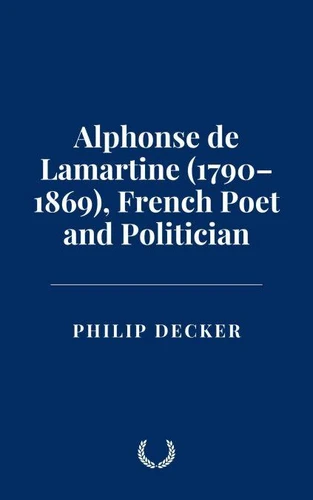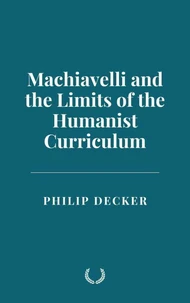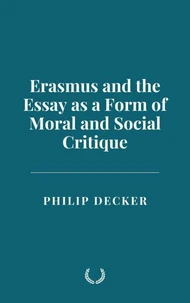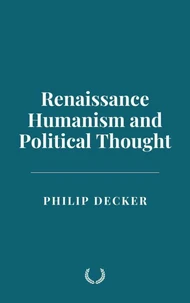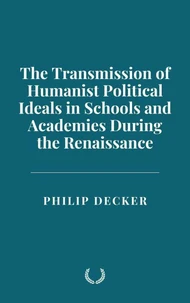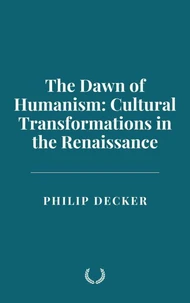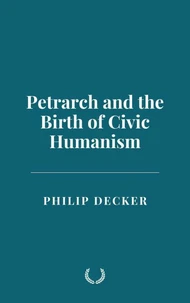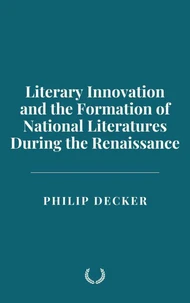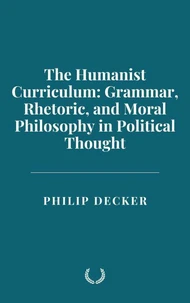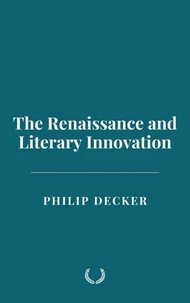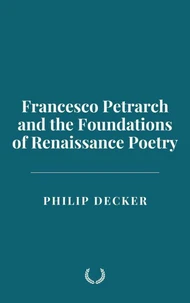Alphonse de Lamartine (1790–1869), French Poet and Politician
Par :Formats :
Disponible dans votre compte client Decitre ou Furet du Nord dès validation de votre commande. Le format ePub est :
- Compatible avec une lecture sur My Vivlio (smartphone, tablette, ordinateur)
- Compatible avec une lecture sur liseuses Vivlio
- Pour les liseuses autres que Vivlio, vous devez utiliser le logiciel Adobe Digital Edition. Non compatible avec la lecture sur les liseuses Kindle, Remarkable et Sony
 , qui est-ce ?
, qui est-ce ?Notre partenaire de plateforme de lecture numérique où vous retrouverez l'ensemble de vos ebooks gratuitement
Pour en savoir plus sur nos ebooks, consultez notre aide en ligne ici
- FormatePub
- ISBN8230841241
- EAN9798230841241
- Date de parution22/01/2025
- Protection num.pas de protection
- Infos supplémentairesepub
- ÉditeurIndependently Published
Résumé
This book offers an in-depth exploration of Alphonse de Lamartine (1790-1869), a pivotal figure in the French Romantic movement, whose contributions to literature, politics, and philosophy left a lasting imprint on 19th-century France and European thought. Through a detailed analysis of his life and works, this study examines Lamartine's development as a poet, politician, and intellectual, revealing the complexity of his moral and spiritual philosophy.
The narrative traces Lamartine's journey from his early poetic beginnings to his involvement in the 1848 Revolution and his vision for a republic founded on liberty, equality, and social justice. Through the lens of his Romanticism, the book delves into Lamartine's exploration of universal themes such as love, time, nature, and the divine, which were central to his poetry and prose. At the heart of the book is an investigation into Lamartine's intellectual engagement with the Romantic ideals of individualism, emotional expression, and the sublime, alongside his desire to reconcile these with the political realities of his time.
His spirituality, deeply personal and profoundly influenced by Christianity, is explored as a key element in his artistic and political vision, shaping his thoughts on justice, social responsibility, and moral leadership. The book also critically assesses Lamartine's political career, especially his role in the 1848 Revolution, where his moderate republican ideals clashed with the growing radicalism of his era, leading to his eventual disillusionment.
In examining Lamartine's enduring influence on French and European literature, the book highlights how his works helped bridge the gap between early Romanticism and later intellectual movements, including Symbolism, existentialism, and modernism. Lamartine's legacy as a poet of profound emotional and philosophical depth, alongside his vision of a morally grounded republic, continues to resonate in contemporary literary and political thought.
Through a blend of historical, literary, and philosophical analysis, this book presents a comprehensive portrait of Lamartine's intellectual contributions, offering new insights into his complex legacy.
The narrative traces Lamartine's journey from his early poetic beginnings to his involvement in the 1848 Revolution and his vision for a republic founded on liberty, equality, and social justice. Through the lens of his Romanticism, the book delves into Lamartine's exploration of universal themes such as love, time, nature, and the divine, which were central to his poetry and prose. At the heart of the book is an investigation into Lamartine's intellectual engagement with the Romantic ideals of individualism, emotional expression, and the sublime, alongside his desire to reconcile these with the political realities of his time.
His spirituality, deeply personal and profoundly influenced by Christianity, is explored as a key element in his artistic and political vision, shaping his thoughts on justice, social responsibility, and moral leadership. The book also critically assesses Lamartine's political career, especially his role in the 1848 Revolution, where his moderate republican ideals clashed with the growing radicalism of his era, leading to his eventual disillusionment.
In examining Lamartine's enduring influence on French and European literature, the book highlights how his works helped bridge the gap between early Romanticism and later intellectual movements, including Symbolism, existentialism, and modernism. Lamartine's legacy as a poet of profound emotional and philosophical depth, alongside his vision of a morally grounded republic, continues to resonate in contemporary literary and political thought.
Through a blend of historical, literary, and philosophical analysis, this book presents a comprehensive portrait of Lamartine's intellectual contributions, offering new insights into his complex legacy.
This book offers an in-depth exploration of Alphonse de Lamartine (1790-1869), a pivotal figure in the French Romantic movement, whose contributions to literature, politics, and philosophy left a lasting imprint on 19th-century France and European thought. Through a detailed analysis of his life and works, this study examines Lamartine's development as a poet, politician, and intellectual, revealing the complexity of his moral and spiritual philosophy.
The narrative traces Lamartine's journey from his early poetic beginnings to his involvement in the 1848 Revolution and his vision for a republic founded on liberty, equality, and social justice. Through the lens of his Romanticism, the book delves into Lamartine's exploration of universal themes such as love, time, nature, and the divine, which were central to his poetry and prose. At the heart of the book is an investigation into Lamartine's intellectual engagement with the Romantic ideals of individualism, emotional expression, and the sublime, alongside his desire to reconcile these with the political realities of his time.
His spirituality, deeply personal and profoundly influenced by Christianity, is explored as a key element in his artistic and political vision, shaping his thoughts on justice, social responsibility, and moral leadership. The book also critically assesses Lamartine's political career, especially his role in the 1848 Revolution, where his moderate republican ideals clashed with the growing radicalism of his era, leading to his eventual disillusionment.
In examining Lamartine's enduring influence on French and European literature, the book highlights how his works helped bridge the gap between early Romanticism and later intellectual movements, including Symbolism, existentialism, and modernism. Lamartine's legacy as a poet of profound emotional and philosophical depth, alongside his vision of a morally grounded republic, continues to resonate in contemporary literary and political thought.
Through a blend of historical, literary, and philosophical analysis, this book presents a comprehensive portrait of Lamartine's intellectual contributions, offering new insights into his complex legacy.
The narrative traces Lamartine's journey from his early poetic beginnings to his involvement in the 1848 Revolution and his vision for a republic founded on liberty, equality, and social justice. Through the lens of his Romanticism, the book delves into Lamartine's exploration of universal themes such as love, time, nature, and the divine, which were central to his poetry and prose. At the heart of the book is an investigation into Lamartine's intellectual engagement with the Romantic ideals of individualism, emotional expression, and the sublime, alongside his desire to reconcile these with the political realities of his time.
His spirituality, deeply personal and profoundly influenced by Christianity, is explored as a key element in his artistic and political vision, shaping his thoughts on justice, social responsibility, and moral leadership. The book also critically assesses Lamartine's political career, especially his role in the 1848 Revolution, where his moderate republican ideals clashed with the growing radicalism of his era, leading to his eventual disillusionment.
In examining Lamartine's enduring influence on French and European literature, the book highlights how his works helped bridge the gap between early Romanticism and later intellectual movements, including Symbolism, existentialism, and modernism. Lamartine's legacy as a poet of profound emotional and philosophical depth, alongside his vision of a morally grounded republic, continues to resonate in contemporary literary and political thought.
Through a blend of historical, literary, and philosophical analysis, this book presents a comprehensive portrait of Lamartine's intellectual contributions, offering new insights into his complex legacy.

